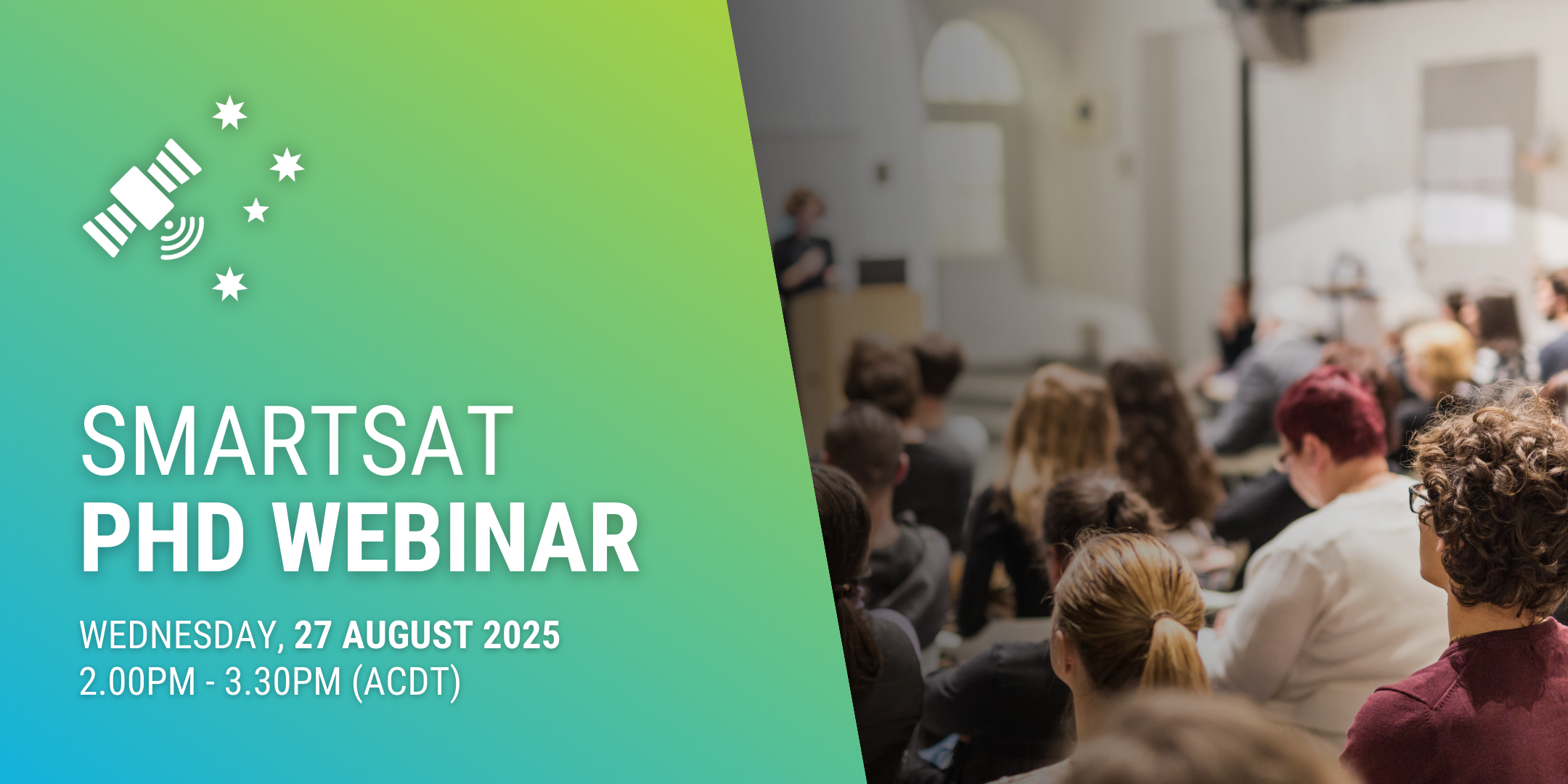SmartSat PhD Webinar August 2025

Date: Wed 27 Aug 2025
Time: 2:00 pm
Location: Online
Register
Hosted by SmartSat Misson Systems Specialist, Associate Professor Ady James, join us for this webinar with current SmartSat PhD students and PhD alumni as they showcase their research, the outcomes of their projects and the lessons learned along the way.
This session will feature:
- Arun Thekedathu Raveendran (The University of Technology Sydney) | P1.31s High Performance Beam Steering Antenna Systems for Space Applications
Arun earned his Bachelor in 2017, Master in 2022, in India. Arun Thekedathu Raveendran is a PhD candidate in Electrical Engineering and his research focuses on the design and optimization of advanced metasurface-based antenna systems for next-generation satellite and communication applications. Arun’s work explores innovative unit cell architectures for beam steering, polarization conversion, and sidelobe reduction, with applications in high-performance metasurface antennas. With strong expertise in electromagnetic simulation tools such as CST Studio Suite and Ansys HFSS, Arun integrates theoretical modeling with practical fabrication and measurement to achieve high-efficiency, wideband, and compact antenna designs. His research interests span near-field phase transformation, phase correction surfaces, and the development of high-gain antennas for satellite communications, remote sensing, and emerging 5G/6G systems. Currently Arun has developed design methodologies and optimized Phase Rotation (PR) metasurface structures for beam steering and circular polarization conversion. These are currently being assessed for potential intellectual property.
- Sai Krishna Reddy Vallapureddy (RMIT University) | P2.16s A Machine Learning Based Solution for Space Situational Awareness and Space Sustainability
Sai is a graduate of Monash University with a Master’s in Advanced Mechanical Engineering, Sai developed a groundbreaking mathematical model to assess collision risks for satellites and orbital debris – an achievement that laid the foundation for his current work. Today, as a Ph.D. candidate in Geospatial Sciences at RMIT University, he is tackling the escalating challenge of space debris. Sai has already made a mark as the co-founder of Ground Zero Space a start-up company dedicated to enhancing space operations and addressing the growing threats in orbit. Ground Zero Space delivers critical Space Domain Awareness, Satellite Communication, and operational solutions through a modular, scalable SSA and SatCom sensor network powered by AI-native architecture and real-time analytics.
- Gillian Rowan (The University of Queensland) | P3.30s Using space-based Earth Observation to map Australia’s kelp forests for a stronger Blue Carbon economy
Gillian completed her Bachelor of Science in Environmental Sciences and Master of Science in Geography at McGill University in Canada, where her Master’s thesis focused on mapping freshwater vegetation species using hyperspectral measurements. Before moving to Brisbane for her PhD, Gillian worked at GHGSat, a company that uses satellite and airborne technologies to monitor methane emissions. Gillian is researching how remote sensing technologies can be used to map kelp biomass accurately and efficiently, from individual forests to a global scale. Most recently, Gillian returned from a successful internship at ESA’s Phi-lab in Rome, where her work has opened the door to promising future collaboration opportunities. We’re also looking forward to hearing her share a little about her ESA experience at the end of her presentation.
Please note this event is at 2.00pm ADST (Adelaide) time.